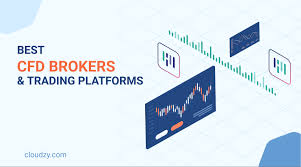
The Best CFD Trading Markets for Successful Trading
In the ever-evolving landscape of financial trading, understanding where to invest can make a significant difference in achieving success. CFD (Contract for Difference) trading has gained immense popularity due to its flexibility, allowing traders to speculate on price movements in various markets without owning the underlying assets directly. To help traders navigate this dynamic environment, we will delve into the best CFD trading markets, enabling you to optimize your trading strategies. For more details, visit best cfd trading markets bestbrokercfd.com.
1. Forex Market: The Largest Trading Arena
The Forex market, also known as the foreign exchange market, is the largest and most liquid trading market globally. With a daily trading volume exceeding $6 trillion, it offers abundant opportunities for CFD trading. Traders can speculate on currency pairs, taking advantage of price fluctuations. Major currency pairs, such as EUR/USD and GBP/USD, are favored by traders due to their volatility and liquidity. The Forex market operates 24 hours a day, five days a week, allowing traders to engage in the market whenever they prefer.
2. Stock Indices: Diversification with CFDs
Trading stock indices through CFDs allows traders to diversify their portfolios while gaining exposure to the stock market’s performance. Indices such as the S&P 500, NASDAQ, and FTSE 100 represent a collection of stocks, enabling traders to speculate on overall market trends rather than individual company performances. This approach reduces risk and enhances potential returns, making stock indices an attractive option for traders. With CFD trading, traders can profit from rising and falling markets, providing greater flexibility in their strategies.
3. Commodities: The Tangible Assets
Commodity trading through CFDs offers an avenue to invest in tangible assets like oil, gold, and agricultural products. The prices of commodities can be affected by factors such as supply and demand dynamics, geopolitical tensions, and natural events. Traders can leverage these factors to create effective trading strategies. For example, gold is often viewed as a safe-haven asset during economic uncertainty, while oil prices can fluctuate dramatically due to geopolitical events or changes in production levels. By trading commodities, CFD traders can tap into these market movements for potential profits.

4. Cryptocurrencies: The Digital Revolution
Cryptocurrency trading has exploded in popularity, with an increasing number of traders looking to invest in digital assets like Bitcoin, Ethereum, and Litecoin. The cryptocurrency market is known for its extreme volatility, presenting both risks and opportunities. Trading cryptocurrencies through CFDs allows traders to speculate on price movements without needing to own the actual digital assets. Additionally, the potential for high returns has drawn many traders to this market, making it one of the best CFD trading markets currently available.
5. ETFs: Exchange-Traded Funds
ETFs (Exchange-Traded Funds) are a popular choice for CFD trading due to their diversified exposure to various sectors and asset classes. With ETFs, traders can invest in a collection of stocks, bonds, or commodities in a single trade. Trading ETFs through CFDs allows for short selling and margin trading, which can enhance profit potential. Additionally, traders can access niche markets and sectors that may not be as easily tradable through traditional methods. This flexibility and diversity make ETFs an essential market for CFD trading.
6. Futures and Options Markets
Trading futures and options through CFDs provides an interesting opportunity for traders who want to speculate on the future price movements of assets like commodities, currencies, and stock indices. Futures contracts obligate the buyer to purchase an asset at a predetermined price in the future, while options give the buyer the right, but not the obligation, to buy or sell an asset at a specific price before the expiration date. Both markets can offer leverage but come with their unique risks, making them suitable for more experienced traders.
Choosing the Right Broker
To successfully navigate the best CFD trading markets, choosing the right broker is crucial. Factors to consider when selecting a broker include regulatory compliance, trading fees, available markets, platforms, and customer support. It’s important to select a broker that aligns with your trading goals and provides a user-friendly trading experience. Always conduct thorough research and read reviews to ensure you’re partnering with a reputable broker.
Conclusion
The best CFD trading markets—Forex, stock indices, commodities, cryptocurrencies, ETFs, and futures&options—offer diverse opportunities for traders to enhance their profitability. By understanding these markets and utilizing effective strategies, traders can capitalize on price movements and achieve their financial goals. As you embark on your CFD trading journey, ensure to stay informed, manage risks wisely, and continuously refine your trading strategies.